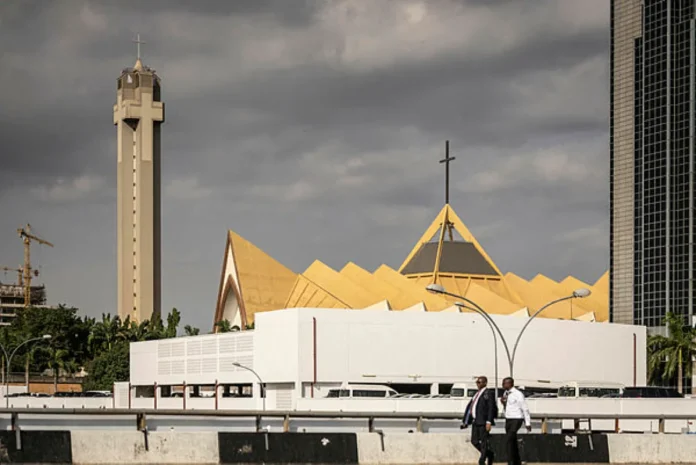Nigerian leaders and communities push back against Trump’s threatened military intervention, citing complex local conflicts affecting all faiths
ABUJA: Nigerians across religious divides have rejected US President Donald Trump’s threats of military intervention over Christian killings in the country.
Africa’s most populous nation remains roughly split between a predominantly Christian south and Muslim-majority north with multiple ongoing conflicts.
Danjuma Dickson Auta, a Christian community leader, acknowledged that both Christians and Muslims face violence in Nigeria’s diverse conflicts.
Trump announced on social media that he had requested Pentagon planning for potential military action in Nigeria.
The US president confirmed he was considering various options including ground troops or air strikes when questioned aboard Air Force One.
“They’re killing the Christians and killing them in very large numbers,” Trump stated on Sunday.
Nigerian President Bola Tinubu countered these accusations by emphasising religious tolerance as fundamental to national identity.
Plateau state exemplifies Nigeria’s complex religious coexistence with mixed Christian-Muslim communities.
The state has experienced significant violence including deadly sectarian riots in Jos during 2001 and 2008.
Recent years have seen deadly clashes between predominantly Christian farmers and Muslim Fulani herders across Nigeria’s Middle Belt.
These conflicts over diminishing land and resources have resulted in substantial farmer casualties and village destruction.
Smaller-scale retaliatory attacks against herders typically receive less media coverage than farmer casualties.
Experts identify poor land management and rural policing as root causes rather than purely religious motivations.
Some Plateau residents describe the escalating violence using terms like genocide within ethnic contexts.
Separatist groups in southeastern Nigeria have promoted claims of Christian genocide in recent years.
US-based firm Moran Global Strategies has lobbied congressional staff this year regarding alleged Christian persecution.
Northern Nigeria faces additional security challenges from jihadist conflicts and criminal bandit gangs.
Most victims in the predominantly Muslim north share the same faith as their attackers.
Abubakar Gamandi, a Muslim fishermen’s union leader in Borno state, dismissed Christian genocide narratives as untrue.
Oxford Economics analyst Jervin Naidoo suggested Washington’s rhetoric might relate to Nigeria rejecting US deportation demands.
The United States has tightened visa rules for Nigerians unlike several other African nations accepting deportees.
Trump previously offered refugee status to South Africa’s Afrikaner community citing genocide concerns.
Reverend Joseph Hayab welcomed Trump’s comments as a wake-up call regarding terrorist threats rather than national conflict.
Tinubu’s spokesman Daniel Bwala interpreted Trump’s communication style as potentially seeking bilateral security discussions. – AFP











